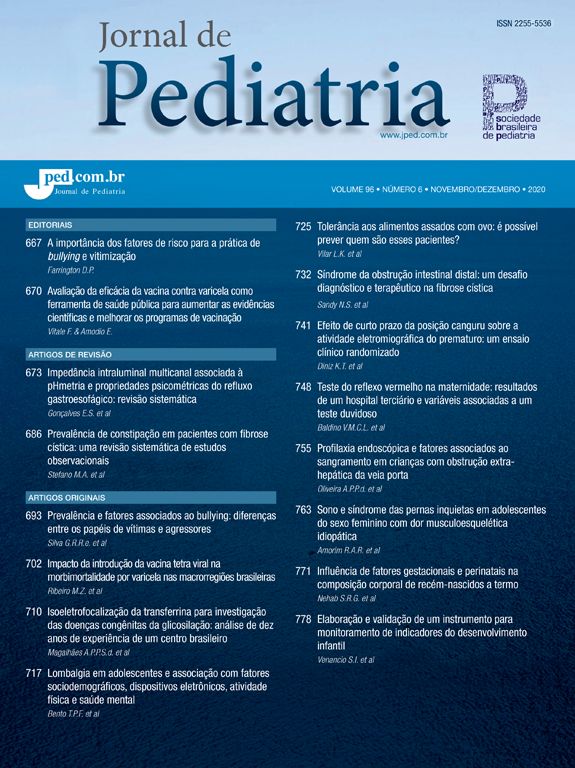this study aimed to evaluate the association of breakfast intake with cardiometabolic risk factors in a nationally-representative sample of Iranian pediatrics.
Methodsthe study participants considered of 5,625 school students aged 10-18 years, studied in the third survey of the national school-based surveillance system (CASPIAN-III). They were classified into three groups based on the number of days they ate breakfast: “regular breakfast eater” (6-7days/week), “often breakfast eater” (3-5days/week), and “seldom breakfast eater” (0-2 days/week). Metabolic syndrome (MetS) was defined based on the Adult Treatment Panel III (ATP III) criteria modified for the pediatric age group. Moreover, high total cholesterol, high low-density lipoprotein cholesterol (LDL-C) and generalized obesity were included as other cardiometabolic risk factors. Multiple logistic regression analyses were used to evaluate the association between the breakfast intake category and cardiometabolic risk factors.
Resultsthe number of subjects classified as “regular”, “often” and “seldom” breakfast eaters were 2,653(47.3%), 1,327(23.7%) and 1,624(29.0%), respectively. The average of triglycerides (TG), LDL-C, systolic blood pressure (SBP) and body mass index (BMI) were higher in the “seldom breakfast eater” group (P for trend<0.001), whereas the mean of high-density lipoprotein cholesterol (HDL-C) was lower in this group than their other counterparts. Seldom breakfast eaters had an increased risk of obesity, elevated TG and LDL-C, as well as low HDL-C compared to “regular breakfast eaters.” The risk of MetS was significantly increased in subjects who seldom ate breakfast (OR 1.96, 95% CI 1.18-3.27).
Conclusionsskipping breakfast is associated with increased risk of MetS and other cardiometabooic factors in children and adolescents. Promoting the benefit of eating breakfast could be a simple and important implication to prevent these risk factors.
: o objetivo deste estudo foi avaliar a associação do consumo de café da manhã com fatores de risco cardiometabólico em uma amostra representativa, em termos nacionais, de pacientes de pediatria iranianos.
Métodos: os participantes do estudo, composto de 5.625 alunos em idade escolar de 10-18 anos, participaram da terceira pesquisa do sistema nacional de vigilância nas esco- las (CASPIAN-III). Eles foram classificados em três grupos, com base na quantidade de dias em que consumiam café da manhã: “indivíduos que consomem café da manhã regu- larmente” (6-7 dias/semana), “indivíduos que consomem café da manhã normalmente” (3-5 dias/semana) e “indivíduos que consomem café da manhã raramente” (0-2 dias/semana). A síndrome metabólica (SM) foi definida com base nos critérios do III Painel de Tratamento de Adultos (ATP III), adaptados para a faixa etária pediátrica. Ademais, o colesterol total elevado, a lipoproteína de baixa densidade-colesterol elevada (LDL-C) e a obesidade generalizada foram incluídos como outros fatores de risco cardiometabóli- co. As análises de regressão logística múltipla foram utilizadas para avaliar a associação entre a categoria consumo de café da manhã e fatores de risco cardiometabólico.
Resultados: a quantidade de pessoas classificadas como indivíduos que consomem café da manhã “regularmente”, “normalmente” e “raramente” foram 2.653 (47,3%), 1.327 (23,7%) e 1.624 (29%), respectivamente. As médias de triglicerídeos (TG), LDL-C, pressão arterial sistólica (PAS) e índice de massa corporal (IMC) foram mais elevadas no grupo de “indivíduos que consomem café da manhã raramente” (P para tendência < 0,001), ao passo que a lipoproteína de alta densidade-colesterol (HDL-C) foi menor nesse grupo que nos outros. Os indivíduos que consomem café da manhã raramente apresentaram um aumento no risco de obesidade, TG e LDL-C elevados, bem como baixo HDL-C em comparação a “indivíduos que consomem café da manhã regularmente”. O risco de SM foi significativamente maior nos indivíduos que consomem café da manhã raramente (RC 1,96, 95% IC 1,18-3,27).
Conclusões: pular o café da manhã está relacionado a aumento no risco de SM e outros fatores cardiometabólicos em crianças e adolescentes. Promover o benefício do consu- mo do café da manhã pode ser uma implicação simples e importante para evitar esses fatores de risco.
Como citar este artigo: Shafiee G, Kelishadi R, Qorbani M, Motlagh ME, Taheri M, Ardalan G, et al. Association of breakfast intake with cardiometabolic risk factors. J Pediatr (Rio J). 2013;89:575-82.









